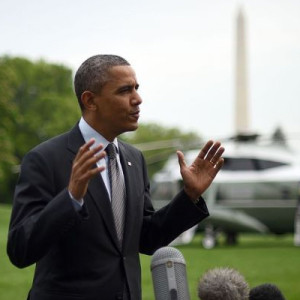Stop Demonizing Palm Oil
PRESS STATEMENT BY THE MEOA
20TH NOVEMBER 2018
The Malaysian Estate Owners’ Association
(MEOA) is gravely concerned over the continued demonization of Palm Oil by
activist non-governmental organizations (NGOs), as well as food companies and
retailers, and calls on them to immediately cease demonizing Palm Oil because
their actions are discriminatory and not holistic in presenting facts.
The latest example of
this systematic demonization campaign is the anti-Palm Oil advertisement placed
by a small United Kingdom-based supermarket chain, intended to be aired on
television over the Christmas period. The advertisement is now banned by the
United Kingdom’s regulatory advertising authority for being ‘political’ in
nature. Nevertheless, if the point of
the advertisement is anti-deforestation rather than anti- Palm Oil (as claimed
by the same supermarket chain’s managing director), we question why the
supermarket chain does not address other sectors and other edible oil crops
that are responsible for more deforestation than is Palm Oil.
We are in full agreement with British
journalist Piers Morgan’s assertion that the supermarket chain is being
‘hypocritical’, and that using the Ran Tan advertisement amounts to ‘Cheap
Publicity’ when the supermarket chain continues to stock BRANDED products that
contain Palm Oil despite being a fierce critic of it. (https://www.youtube.com/watch?v=5Oxh8k2VKZg).
Lyndsey Stripped’s article of 18th
November 2018 gives a balanced and objective outlook on the supermarket chain’s
nonsensical boycott.
Let’s examine the issues of deforestation
and land usage.
- Palm Oil is not a major contributor of greenhouse gas emissions (GHGE) as it contributes only 0.6% of global GHGE. The largest contributor from the Agriculture sector is ruminant farming, and yet there are no calls by any environmental organization for a ban on beef or lamb production. In fact, 2 million hectares of land are cleared annually for cattle farming alone. Another 480,000 hectares of land are cleared annually to make way for Soya Beans to sustain the feed industry for animals.
- Palm Oil is a cheap and competitive oil not because it is sub-par or irresponsibly cultivated. It is cost-effective and competitive because it has high yields (4 to 10 times those of other vegetable oils per unit area of land), and because its cultivation and production involves a well-managed industry. We are proud that oil palms that produce Palm Oil occupy just 0.001% of total global land area and 0.4% of the world’s area under agriculture, yet contributes over 35% of global oils and fats.
- Palm Oil is not responsible for most of the clearing of forests. Over the past 100 years, only 19 million hectares of land have been cleared globally for Palm Oil cultivation. But in just the last 10 years, 14.5 million hectares have been cleared for Soya Bean cultivation. One wonders why Greenpeace, which created the advertisement for the UK supermarket chain, has not mounted any campaign against deforestation for Soya Bean planting. And mind you, it is well known that Soya Beans cater to the beef industry, where cattle are huge emitters of Methane, a potent GHG.
The Malaysian government has repeatedly emphasized that Malaysia is committed to maintain a 50% forest cover. No European country can match that.
- The world’s population is growing, and a lot of food is needed to feed the increasing number of human beings. UNESCO and Oxfam have both stated that global food production must increase by 70 % by 2050. Palm Oil can contribute towards filling this gap. Already, 975 million people suffer from chronic malnourishment. Palm Oil is an affordable source of nourishment not just as a dietary fat, but is rich in carotenes, vitamins A & E, tocotrienols and other nutrients.
The world needs more Palm Oil to combat global hunger and malnourishment. Harming this industry via a sustained negative campaign goes against the grain of these objectives.
- Across Malaysia, Indonesia and Thailand, the Palm Oil industry is a crucial industry as it supports close to 3 million small farmers. This industry has lifted millions out of poverty and ensured economic and social justice for the poorest sections of society. It has also helped Malaysia achieve its economic and political objective of wealth redistribution, and in so doing it has helped to maintain social stability.
- In the next few years, under the MANDATORY Malaysian Sustainable Palm Oil (MSPO) certification scheme, Palm Oil in Malaysia will provide the assurance required to allthat it is sustainably produced.
It is ironic
that other edible oils do not require a sustainability fiat and are not
subjected to the same stringent requirements demanded of palm oil. This is
discriminatory and reeks of double standards.
Palm Oil is not confined to cooking oil and
biofuels. It has a future that includes oleochemicals and biochemicals,
pharmaceutical products and energy from its biomass. Its production involves a
multifaceted and complex industry that serves important social and economic
objectives in Southeast Asia, as well as addressing the ever-pressing global
imperative of feeding a growing world population.
Attempts to denigrate and demonize Palm Oil
affect the livelihoods of millions of innocent and hardworking people. These
attempts have to stop. Enough is enough.
What do this UK supermarket chain and
Greenpeace want to achieve? Reduce the demand for Palm Oil and substitute it
with some other edible oil which entails greater deforestation?
We call on retailers, food companies and
other related organizations such as NGO members of the Roundtable for
Sustainable Palm Oil (RSPO) to actively encourage the use of Certified
Sustainable Palm Oil (CSPO), and to defend CSPO when unfair accusations appear
in the media. These bodies need to stop playing with people’s livelihoods and
stop demonizing an efficient, productive oil that in 100 years has helped to
feed the world and pulled millions of small farmers out of poverty.
The
Malaysian Estate Owners’ Association (MEOA)










Leave a Reply